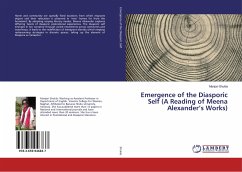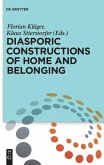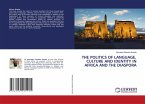This work takes the notion of home as its focus of interest given its crucial centrality in human life generally and in the life of displaced people particularly. Indeed, the critical importance of the concept of home stems from its association with a number of significations. At times, home seems to assume a fixed meaning and finished sense of belonging where difference is not permitted; whereas, at the age of globalization, home is dislocated and destabilized. In short, home is a site of constructedness. However, the deconstruction of the idea of home in the Moroccan diasporic fiction opens up possibilities of resistance. The explored literary works are marked with restless subjects who tend to feel at home in the cosmopolitan diaspora. They perform a quest for home that is doomed to continuity which defies the singularity of the authoritative discourses. While resistance to absolutist thinking and celebration of human plurality is intrinsic to diaspora theory, a condense contextualization of diaspora remains a necessity for reaching unexplored facets of identity formation in a world that has become swept by global diasporic communities.








